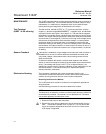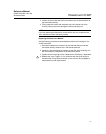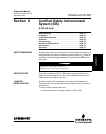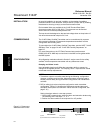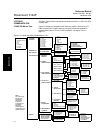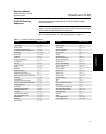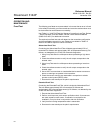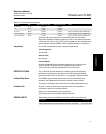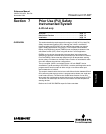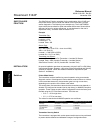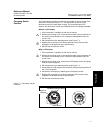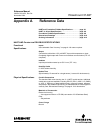
Reference Manual
00809-0100-4021, Rev DA
November 2004
Rosemount 3144P
6-6
Certified SIS
OPERATION AND
MAINTENANCE
Proof Test The following proof tests are recommended. In the event that an error is found
in the safety functionality, proof test results and corrective actions taken must
be documented at www.rosemount.com/safety.
Use "Table 6-1: 3144P SIS Fast Key Sequence" to perform Loop Test, Review
– Device Variables, and view Status. See the 3144P Reference Manual
(00809-0100-4021) for additional information.
The required proof test intervals will depend on the transmitter configuration
and the temperature sensor(s) in use. Guidance is available in Table 6-2.
Refer to the FMEDA report for further information.
Abbreviated Proof Test
Conducting the Abbreviated Proof Test will detect approximately 63% of
transmitter DU failures and approximately 90% of temperature sensor(s) DU
failures, not detected by the 3144P SIS automatic diagnostics.
1. Using Loop Test enter the milliampere value representing a high alarm
state.
2. Check the reference meter to verify the mA output corresponds to the
entered value.
3. Using Loop Test enter the milliampere value representing a low alarm
state.
4. Check the reference meter to verify the mA output corresponds to the
entered value.
5. Use a HART communicator to view detailed device status to ensure no
alarms or warnings are present in the transmitter.
6. Check that sensor value(s) are reasonable in comparison to a basic
process control system (BPCS) value.
7. Document the test results per the plant’s requirements.
Extended Proof Test
Conducting the Extended Proof Test, which includes the Abbreviated Proof
Test, will detect approximately 96% of transmitter DU failures and
approximately 99% of temperature sensor(s) DU failures, not detected by the
3144P SIS automatic diagnostics.
1. Execute the Abbreviated Proof Test.
2. Perform a minimum two point sensor verification check. If two sensors
are used, repeat for each sensor. If calibration is required for the
installation, it may be done in conjunction with this verification.
3. Verify that the housing temperature value is reasonable.
4. Document the test results per the plant’s requirements.



